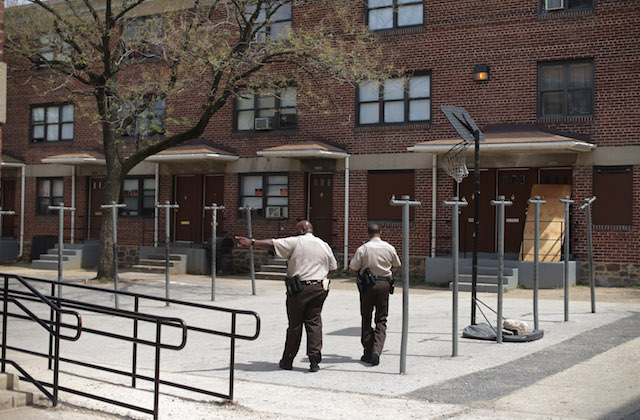Nearly one million American households received eviction notices in 2016, according to newly released data from a team of Princeton University researchers at Eviction Lab.
On Saturday (April 7), The New York Times reported on the research, which examines 83 million eviction records that demonstrate widespread housing insecurity in both urban and rural locales around the country. The article spotlights Richmond, Virginia—the city with the second highest eviction rate in the nation—where eviction judgments are far more common in areas where people of color live than they are in predominantly White neighborhoods.
Sociologist Matthew Desmond led a team of researchers to capture millions of court records dating back to 2000. They found 900,000 court-ordered eviction judgments for 2016. "That equates to about an estimated 2.3 million people evicted in that year, many of them children," Desmond said in an interview with Marketplace. "That’s about 6,300 people a day that are evicted."
And those numbers only include eviction cases that made it to the courtroom. Per The Times, many renters do not appear in court because they cannot afford an attorney, they see the process as labyrinthine or they feel there is not much to argue when they do not have the funds owed to landlords. In Richmond, the median amount owed was $686.
From the Eviction Lab:
Today, most poor renting families spend at least half of their income on housing costs, with one in four of those families spending over 70 percent of their income just on rent and utilities…. Only one in four families who qualifies for affordable housing programs gets any kind of help. Under those conditions, it has become harder for low-income families to keep up with rent and utility costs, and a growing number are living one misstep or emergency away from eviction.
Per Pew Research Center, Black and Latinx households in the United States are about twice as likely to rent their homes as White households. Researchers noted that poor women of color, domestic violence victims and women with children have a high risk of eviction. In a 2014 study authored by Desmond, Black women with low-incomes were evicted at alarmingly higher rates than other racial groups due to factors such as having children, low wages and landlord-tenant gender dynamics.
Apart from Richmond, cities with the highest eviction rates included North Charleston, South Carolina; Hampton, Virginia; Newport News, Virginia; and Jackson, Mississippi. The research stressed the long-term consequences of court-ordered evictions, including access to affordable housing, since landlords often screen for recent evictions. Evictions can also impact mental health outcomes, especially among mothers living in poverty, studies show. "The evidence strongly indicates that eviction is not just a condition of poverty, it is a cause of it," Eviction Lab writes on its website.
Learn more about how housing eviction affects millions of people around the United States at Eviction Lab. Find resources for housing assistance and tenants’ rights at Just Shelter.
